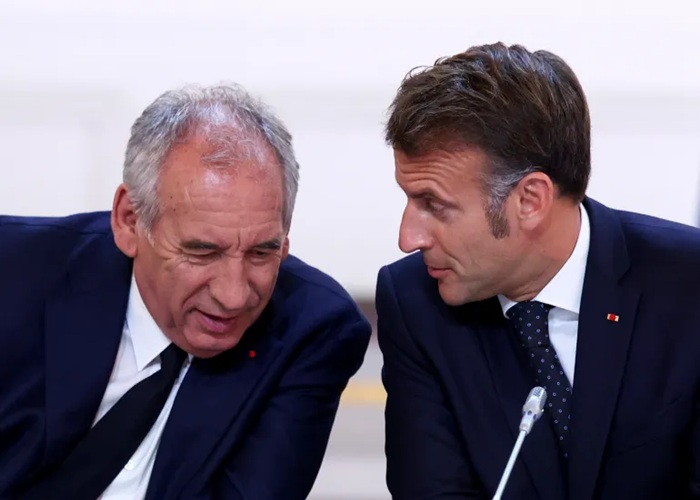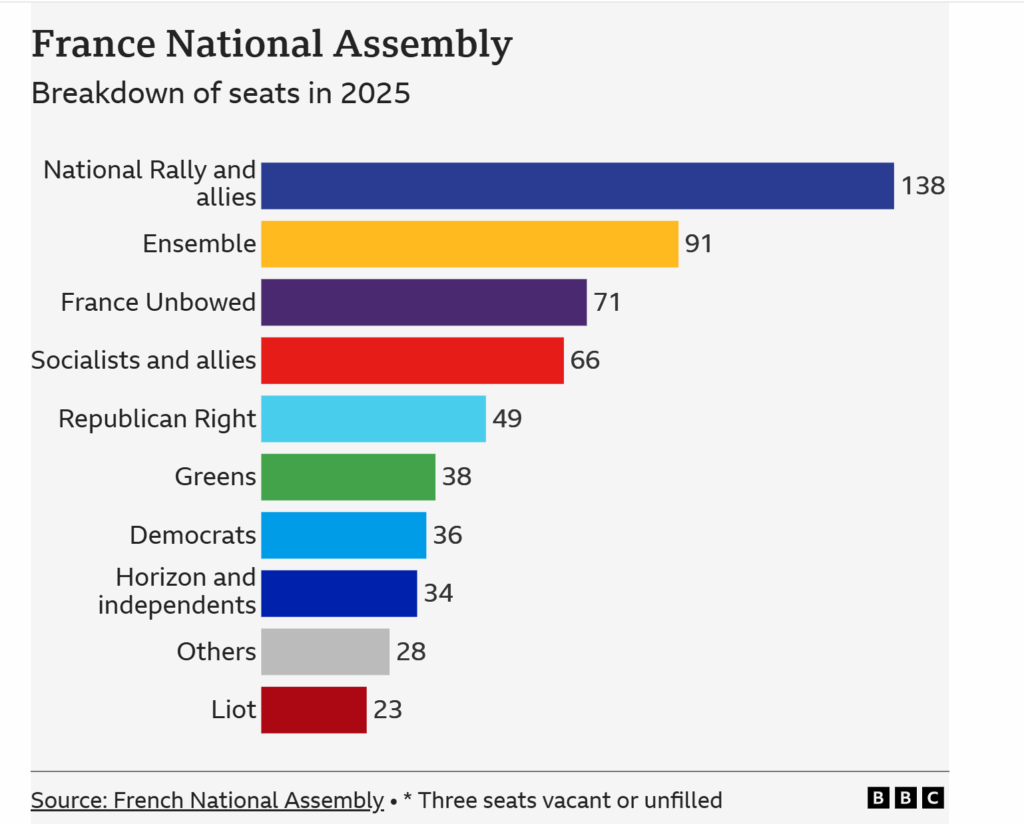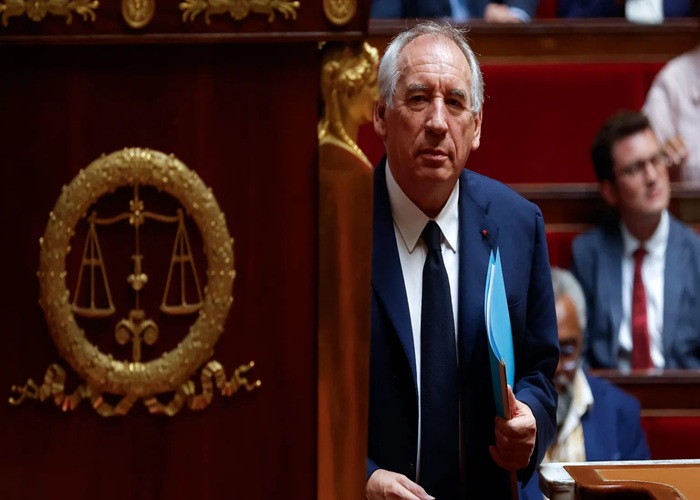
PM Bayrou lost the vote, but a deadlock in Parliament means France might struggle to find a replacement who can pass a budget aimed at cutting the deficit.
French Prime Minister François Bayrou has lost a confidence vote of MPs, ending his nine months in office during a period of chaos in the country’s parliament, the National Assembly.
Bayrou, 74, was the fourth prime minister in two years under President Emmanuel Macron, whose second term is office has been overshadowed by political instability.
The outgoing PM’s minority government called for €44bn (£38bn) of budget cuts to tackle France’s mounting public debt. It has now effectively collapsed.
The BBC looks at what led to his removal by MPsand what could happen next.
Ahead of the no-confidence vote, Bayrou spoke on Monday afternoon in the National Assembly, France’s lower house of Parliament, where he told lawmakers that the economy faced serious risks because of its deep indebtedness. He then fielded questions from parliamentarians, before the vote took place.
Here’s what you need to know:

What could happen next?
For several weeks, lawmakers had made it clear they would vote against Bayrou’s state-slashing budget. Opposition parties from the far left to the far right hold 330 seats in the 577-seat National Assembly – so Monday’s ouster was widely expected.
After Monday’s vote, Bayrou’s government has collapsed. However, he will stay in office until President Emmanuel Macron decides what to do next. Unfortunately for the president, France lacks a consensus figure to replace Bayrou.
Macron is faced with uniquely hard choices – appoint another prime minister in the hope that he or she can pass an unpopular budget, call new elections to try to re-establish a parliamentary majority, or stand down himself, something he has refused to do before his term ends in 2027.
With the arithmetic in Parliament unchanged, picking a new premier risks simply repeating the events from last year when Bayrou succeeded Michel Barnier.
A fiscal conservative, Macron is unlikely to appoint a premier who advocates for higher state spending. But after the government recently tried to cut deals on the right of the political spectrum, some wonder if Macron might try something new.
According to Stefano Palombarini, assistant professor of economics at the University of Paris VIII, “the two previous appointments, Barnier and Bayrou, both failed. He [Macron] lost a lot of credibility in that process, and if he tries a similarly centrist approach, he’d lose even more.”
Palombarini told Al Jazeera that “in this context, it would make the scenario of a relative opening towards the left possible. Some Macronist, Socialist and Green politicians say they’re ready for compromises to form a government that lasts until 2027.”
Does this mean there is a clear political path?
Not really.
According to an opinion poll this month for Le Figaro Magazine by the Verian Group, just 15 percent of the electorate has confidence in Macron, down 6 percentage points since July. However, the president has consistently ruled out resigning from office.
Separate surveys by Ifop, Elabe and Toluna Harris Interactive indicated that 56 to 69 percent of French people want snap parliamentary elections, indicating growing dissatisfaction with current party politics in a country run by minority cabinets since 2022.
For Palombarini, “there’s general political malaise [in France] and also dissatisfaction specifically with Macron. So overall, opinion polls are actually quite stable.” Indeed, the latest polls show no material change in voting intentions over the past year.
This means there is no certainty that a new prime minister would be safe from a similar fate as Bayrou.
What are the origins of this crisis?
At the heart of France’s political paralysis is Macron’s risky decision to call snap parliamentary elections last year. That came after he was re-elected in 2022.
Macron’s gamble in June 2024 was an effort to shore up support for the political centre. But French voters edged towards the extremes, leaving Macron with a weakened minority government and limiting his ability to pass legislation.
The vote resulted in a hung Parliament split between three groups. A left alliance won the most seats, but fell far short of a majority. The far-right National Rally won the most votes, but also doesn’t have a majority. Macron’s centrist coalition lost seats, but still forms a significant third bloc.
This parliamentary shake-up has made France hard to govern. Divisions have shown up most clearly around spending.
How does the budget fit into it?
The immediate reason for Bayrou’s fall is his budget proposal for next year. His unpopular 44-billion-euro ($51bn) deficit-reduction plan, including freezing most welfare spending and scrapping two public holidays, has been widely rejected by parliamentarians.
On August 25, Jordan Bardella, head of the National Rally, said his party would “never vote in favour of a government whose decisions are making the French suffer”. Bayrou in effect has announced “the end of his government”, Bardella said.
The French budget deficit is now nearly 169 billion euros ($198bn), or 5.8 percent of its gross domestic product (GDP), well above the 3 percent limit set by the European Union for countries using the euro.
Bayrou is trying to lower the government’s borrowing to 4.6 percent of gross domestic product (GDP) in 2026 and to 2.8 percent by 2029. In turn, that would lower the overall debt-to-GDP ratio to 117.2 percent in 2029, compared with 125.3 percent if no changes are made.
Bayrou recently said young people will be saddled with years of debt payments “for the sake of the comfort of boomers” if France fails to tackle its fiscal pressures. Born in 1951, Bayrou himself qualifies as a baby boomer, the generation born in the years soon after World War II.
But any attempt to curtail social benefits is politically difficult in France, as made clear by conflicts in 2023 over Macron’s decision to raise the retirement age to 64 from 62.
Still, investors worry that France’s persistent deficits will cause ever higher debt ratios and undermine its credit score.
Is more gridlock expected?
A series of street demonstrations known as “Block Everything” is expected this week, followed by union-led hospital and rail strikes in the second half of September.
In 2018 and 2023, France witnessed what became known as the “gilets jaunes”, or yellow vest. anti-government protests against various domestic policies overseen by Macron, who will want to avoid a repeat this time, analysts said.
“Macron’s policies since 2017 have been very unpopular. If there were legislative elections tomorrow, a Macronist government would not get elected,” Palombarini said.
But with the president rejecting the idea that he might resign early, “he is likely to continue to enjoy power of the office for a few more years”, Palombarini added.
Beyond that there are also voices – from the far left this time – calling for Macron’s resignation. That is most unlikely to happen.

Who could replace Bayrou?
Pressure will be on Macron to name a successor from the left. The last two prime ministers were from the right and centre, and a left alliance came out numerically top in the 2024 election.
Olivier Faure, the leader of the Socialist Party, would be one possibility. The 57-year-old has a group of 66 deputies in the National Assembly.
Two other possibilities from the left are former PM Bernard Cazeneuve, and the veteran ex-minister Pierre Moscovici, currently head of the Cour des Comptes, the official accounting office.
If Macron decides to stick with the centre and right, his first choice would probably be Sebastien Lecornu, 39, the current defence minister who is a member of Macron’s Renaissance party and said to be close to the president.
Another conservative whose name has been mentioned is the current minister of labour and health, Catherine Vautrin.
Two other possibilities from inside government are Interior Minister Bruno Retailleau, who now leads the Republicans, and Justice Minister Gérald Darmanin.
But with all eyes on the 2027 presidential election, would these heavyweights want the electoral kiss-of-death which is to be Macron’s next PM?





 World Opinions Débats De Société, Questions, Opinions et Tribunes.. La Voix Des Sans-Voix | Alternative Média
World Opinions Débats De Société, Questions, Opinions et Tribunes.. La Voix Des Sans-Voix | Alternative Média




